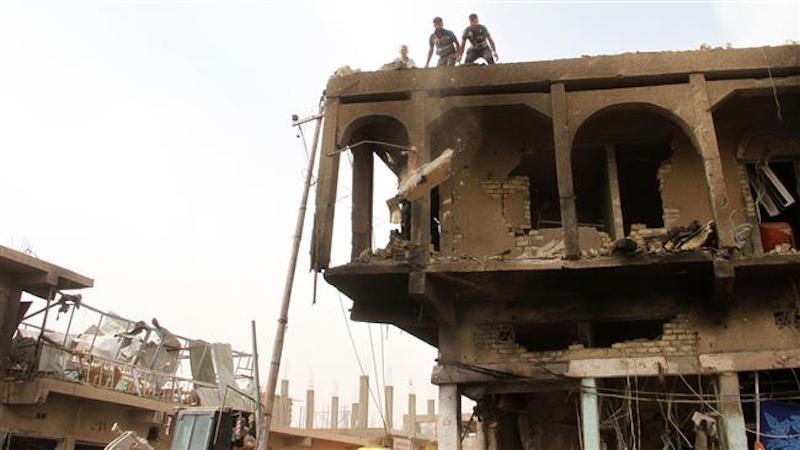London – Secret Prisons in Iraq have always been an issue of debate especially after the 2003 change when the Baathist party toppled down with the regime that had been ruling for 35 years.
U.S. top officials, including Iraq’s first governor Paul Bremer, admitted their failure in finding a suitable substitute to the former Iraqi opposition leaders.
Amid the American failure that formed an authority built on ethnic and sectarian divisions, it seems as though Iran is the party to benefit the most despite the fact that many Arab countries supported the Americans in toppling Saddam.
Yet, Iran took the matters into its own hands in building a new Iraq different from the vision of all others including their partners, the Americans.
Bremer used to say that Iran should have a role in maintaining Iraq’s stability. Yet, this stability turned into a problem that U.S. has to pay for, not only in Iraq but also in Lebanon, Yemen and Syria.
Through its affiliated militias, Iran was able to have a ruling hand in nearby countries, thus creating a state within the state with its own army, artillery and prisons.
The prisons are not so confidential, as many Iraqi leaders and rights activists all over the world, and not just in Iraq, spoke of them and the violations taking place.
This also prompted a series of meetings with Iraqi and EU officials to discuss the cases, without any response from the Iraqi government. The only responses are usually to deny such claims or accuse parties of harboring hostile agendas against the new Iraq.
But, it has always been different to former prisoner Abo Abdallah. Abo Abdallah who was imprisoned in one of those secret prisons and currently resides in Arabic country. He told Asharq Al-Awsat newspaper that he was imprisoned for over two years and was released after a deal.
The former prisoner said that these prisons are all over Iraq and belong to armed factions. He said that they are secretive except the one belonging to Sadrist Movement in al-Hanana area of Najaf city. He explained that this prison is for people who break the law and cases of corruption, often imprisoned based on instructions from Leader of Sadrist Movement Muqtada Sadr.
Abo Abdallah told Asharq Al-Awsat via a phone conversation that according to his credible sources, most prisons were established after ISIS entered Iraq and occupied four western governorates.
He added that most prisons belong to armed factions, mostly Hezbollah factions. He explained that there are five prisons in al-Habareya: Abo gharek and al-Nakhib are managed by Hezbollah, al-Razaza by League of Righteous, Sadr al-Qanah by Risaleyon Factions, and al-Khales by Badr organization.
According to the former prisoner, there are 1208 prisoner in al-Razaza prison and 729 in abo Gharek. He categorized the prisoners as 90% Sunnis and the remaining 10% are Communist Shi’ites.
He added that the prisons are all over Iraq from Babel, to Anbar until Diyala. In addition, many prisons were established in Diyala especially after militias took over the streets and began purging the area. The area witnessed several cases of kidnap and organized killings.
Thus, according to Abo Abdallah, the criminal activities in certain areas of the district are evidence that militias have most of the district under their control. Some militias prevented the prime minister and speaker from entering al-Muqdadiyah following the bombing of nine Sunni mosques.
Citizens of Diyala recall the testimonies of kidnapped citizens who were released by ransom or security forces.
Abo Abdallah pointed out that the idea of detention places belonging to militias is not new. He explained that between 2005 and 2011 security forces raided several homes to discover that they have been turned into detention places.
Abo Abdallah narrated one of the prisoners saying that his brother died due to malnutrition and not enough food. The prisoner didn’t inform the officials of the death of his brother in order to receive his food supply.
Deputies of the governorate had always raised the issue. Iraqi Member of Parliament Raad al-Dahlaki said that militias are all over Iraqi territories are kidnapping civilians as part of their demographic agenda.
Dahlaki added that security forces are unable to solve the issue of militias.
The Diyala MP Dahlaki warned that if the security situation remains as it is, things will become worse. He stressed that the silence of the officials will only aggravate the situation.
MP Dahlaki concluded that it is the government’s moral and legal responsibility, as well as the three presidencies, to come up with radical changes to solve this issue and implement the law on criminals.
